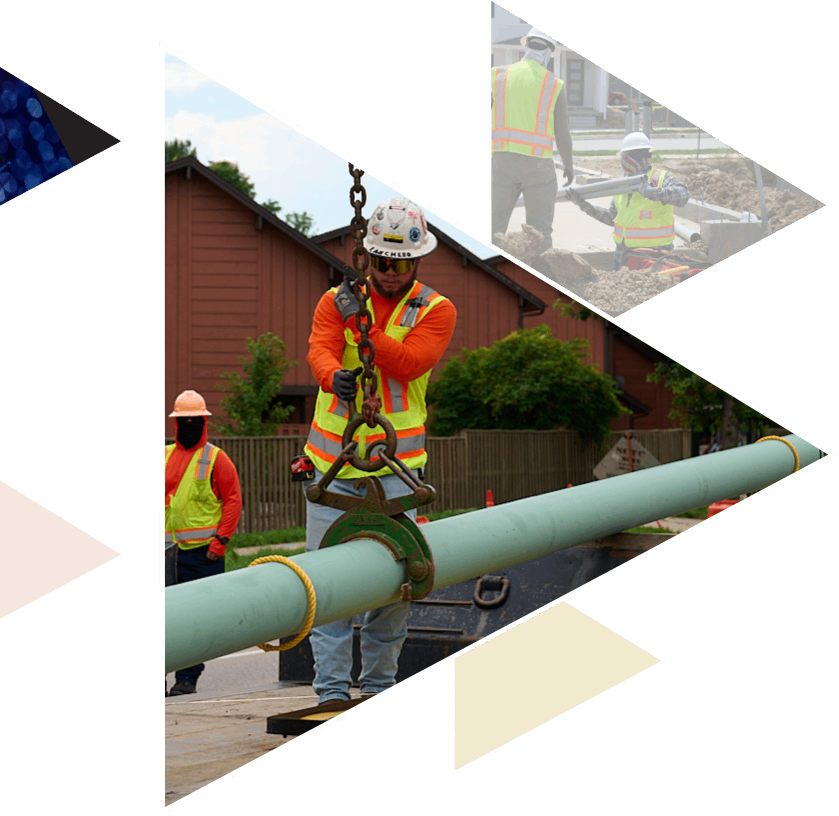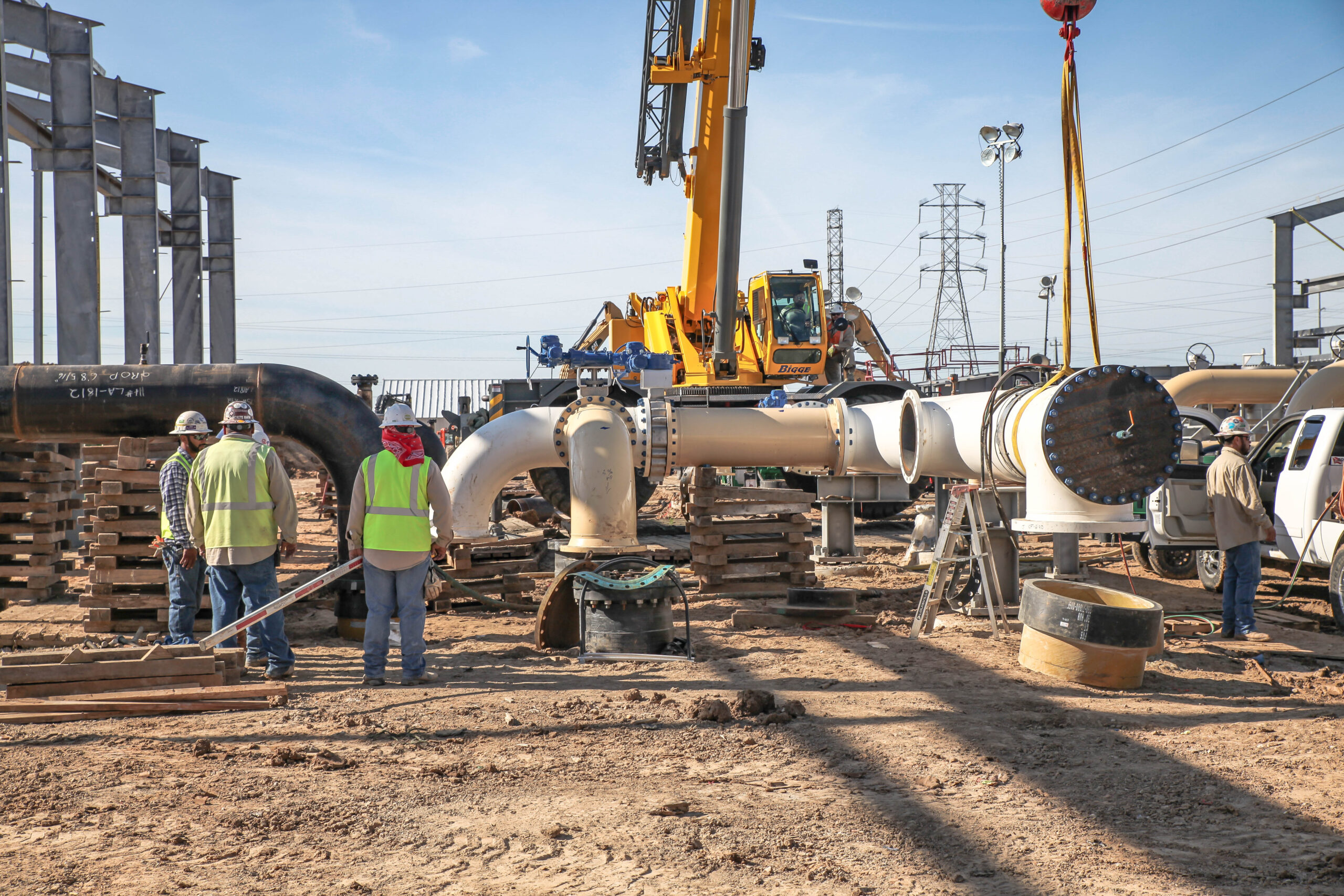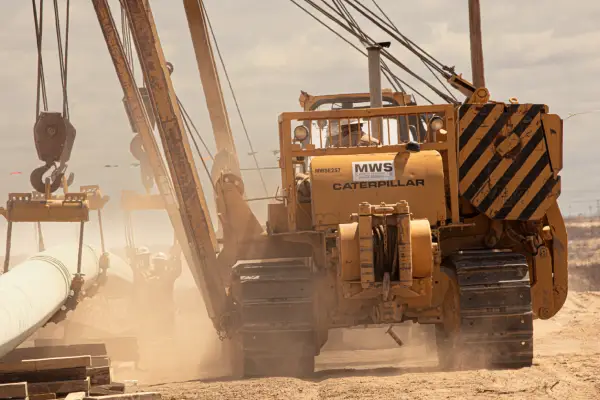How Customer Feedback Can Help You Choose Pipeline Construction Services
Wiki Article
The Important Overview to Comprehending Pipeline Construction Services and Their Relevance
Pipeline Construction services are fundamental to the transport of necessary resources such as water, gas, and oil. These services entail careful planning and execution, adhering to strict security and environmental criteria. As the sector adapts to modern obstacles, recognizing its effects and parts comes to be progressively vital. What elements add to the expanding importance of these solutions in today's economy? The adhering to sections will certainly explore these critical aspects.Summary of Pipeline Construction Providers
Pipeline Construction services incorporate a series of activities essential for the installation and upkeep of pipes used to deliver various materials, including oil, water, and gas. These solutions are crucial for ensuring the reliable and secure motion of resources from one area to one more. The procedure usually begins with complete preparation and design, which considers regulatory requirements, environmental considerations, and logistical challenges.Excavation and grading of the land are conducted to prepare the website for Pipeline installment when planning is complete. This is adhered to by the real laying of the pipes, which involves welding or joining sections with each other to develop a continual circulation path. After installation, rigorous testing is performed to guarantee integrity and safety and security. Maintenance solutions are likewise provided to resolve any kind of problems that may arise with time. Overall, Pipeline Construction solutions play a pivotal duty in supporting facilities for energy and water distribution.
Key Elements of Pipeline Construction
An effective Pipeline Construction task relies on several crucial elements that assure the effective and safe installment of the Pipeline system. First, detailed site assessments are crucial, as they identify the geographical and ecological factors that might affect Construction. Next off, the choice of proper products, such as pipes and installations, is necessary for securing durability and compatibility with the delivered materials.Advanced Construction strategies, consisting of trenchless modern technology and directional exploration, improve effectiveness and minimize environmental impact. Efficient job administration is one more essential component, coordinating labor, equipment, and timelines to fulfill task objectives.
In addition, interaction amongst stakeholders, consisting of engineers, service providers, and neighborhood authorities, warranties placement on task requirements and needs. Ultimately, comprehensive top quality control measures throughout the Construction process ensure conformity with sector requirements and make the most of the Pipeline's operational life-span. Collectively, these components form the foundation of an effective Pipeline Construction project.
Security Standards and Laws in Pipeline Construction

Regulative bodies, such as the Occupational Security and Wellness Administration (OSHA) and the Pipeline and Hazardous Products Safety And Security Administration (PHMSA), stated details needs that regulate Construction methods. These consist of methods for equipment usage, worker training, and emergency action treatments. By applying these standards, Construction business not just secure their staff members however likewise safe public trust fund. Ultimately, rigorous security steps add to the long-lasting success of Pipeline jobs, ensuring they fulfill both functional and environmental expectations.
Ecological Factors To Consider in Pipeline Projects

Ecological considerations are indispensable to the preparation and implementation of Pipeline jobs. These projects need to assess possible effects on ecosystems, water sources, and local wild animals. Conducting comprehensive ecological effect evaluations (EIAs) is vital, enabling stakeholders to recognize and mitigate dangers prior to Construction begins.
Securing delicate locations, such as habitats and wetlands, usually requires carrying out details design functions or different routing to lessen interruption. In addition, Pipeline operators are tasked with establishing techniques for stopping spills and leaks, which can have destructive results on the atmosphere.
Engagement with neighborhood neighborhoods is crucial, as public concerns can lead to project adjustments that boost environmental management. Conformity with laws established by environmental firms guarantees that tasks fulfill sustainability criteria, cultivating an equilibrium in between facilities demands and ecological conservation. Inevitably, resolving ecological considerations not only safeguards nature but also promotes area count on and job feasibility.
The Function of Technology in Pipeline Construction
Technology plays an important role in modern-day Pipeline Construction, boosting performance and precision. Advanced surveying techniques allow for exact planning and execution, lessening environmental effect and job hold-ups. Furthermore, the assimilation of automation and robotics simplifies operations, reducing labor prices and enhancing safety on Construction websites.Advanced Evaluating Methods
Advanced surveying strategies play a crucial duty in the successful execution of Pipeline Construction projects. These approaches utilize innovative modern technology to ensure accurate mapping and evaluation of the surface where pipelines will certainly be set up. Strategies such as Geographic Details Solution (GIS), LiDAR (Light Detection and Ranging), and 3D modeling make it possible for designers to examine the landscape and imagine, recognizing potential challenges and environmental worries. By utilizing these innovative tools, teams can improve precision ready and alignment, significantly minimizing the danger of mistakes during Construction. In addition, real-time data collection enables for over at this website prompt adjustments and informed decision-making throughout the job lifecycle. Eventually, these evaluating innovations add to improved effectiveness, safety and security, and sustainability in Pipeline Construction efforts.Automation and Robotics

Economic Influence of Pipeline Framework
Pipeline facilities plays a necessary function in assisting in and shaping local economic climates trade. By supplying a trusted methods of transporting oil, gas, and various other products, pipes decrease transportation costs and boost supply chain performance. This framework attracts financial investment, boosts work production, and promotes financial development in bordering locations.The Construction and upkeep of pipes add substantially to regional economies, producing numerous employment opportunities in different sectors, from design to labor. The increase of jobs frequently causes boosted spending in regional businesses, better bolstering financial activity.
Furthermore, pipes boost energy safety by ensuring a secure supply of resources, which is important for property needs and commercial procedures. As areas end up being interconnected via Pipeline networks, they obtain accessibility to more comprehensive markets, increasing competition and economic resilience. The economic influence of Pipeline framework is diverse, affecting both prompt neighborhood economic situations and wider regional development.
Future Trends in Pipeline Construction Providers
The future of Pipeline Construction services is progressing in reaction to technological advancements, regulatory changes, and growing ecological factors to consider. Innovations such as drones and robotics are enhancing evaluation and upkeep procedures, improving safety and security and efficiency. Automation is positioned to lower labor costs and increase precision in Construction operations. Furthermore, the enhancing focus on sustainability is triggering business to embrace eco-friendly products and practices, straightening with worldwide efforts to reduce carbon impacts.Regulatory frameworks are also adjusting to address ecological influences, promoting greater openness and accountability in Pipeline tasks. The integration of wise technologies, including real-time surveillance systems, is anticipated to boost the integrity and performance of Pipeline networks. As power needs shift towards renewable sources, Pipeline Construction solutions will likely see a rise in tasks connected to biofuels and hydrogen transportation. On the whole, these fads show a transformative duration for the Pipeline Construction sector, concentrated on technology and sustainability.
Frequently Asked Inquiries
What Sorts of Pipelines Are Typically Created?
Various sorts of pipelines are frequently built, including oil, sewage, gas, and water pipes - Pipeline Construction Services. Each offers unique objectives, assisting in the transport of important resources across regions while adhering to safety and ecological lawsHow Lengthy Does a Typical Pipeline Task Take?
The period of a normal Pipeline project varies significantly, typically ranging from a number of months to a few years. Elements influencing this timeline include project complexity, regulative authorizations, and ecological factors to consider that have to be dealt with.Who Regulates Pipeline Construction Companies?
Pipeline Construction companies are regulated by various federal, state, and local agencies, including the Pipeline and Hazardous Products Safety And Security Management (PHMSA) and state public energy payments, making certain conformity with security and environmental standards throughout the Construction process.What Are Usual Materials Utilized in Pipeline Construction?
Typical materials made use of in Pipeline Construction include pvc, steel, and polyethylene. Each my sources material provides distinctive advantages such as toughness, resistance, and flexibility to deterioration, making them suitable for different applications in transporting fluids and gases.
Exactly How Are Pipeline Construction Costs Approximated?
Pipeline Construction expenses are estimated by assessing variables such as product expenses, labor rates, task intricacy, environmental factors to consider, and governing demands (Pipeline Construction Services). Accurate price estimate assurances effective budgeting and project planning throughout the Construction procedurePipeline Construction solutions incorporate an array of tasks essential for the setup and upkeep of pipelines used to transport numerous materials, consisting of oil, water, and gas. An effective Pipeline Construction project relies on a number of vital components that ensure the safe and efficient setup of the Pipeline system. Advanced evaluating techniques play a necessary duty in the effective execution of Pipeline Construction projects. Different types of pipelines are generally constructed, including oil, sewage, gas, and water pipelines. Pipeline Construction expenses are approximated by assessing factors web such as material expenses, labor rates, job intricacy, environmental considerations, and regulatory demands.
Report this wiki page